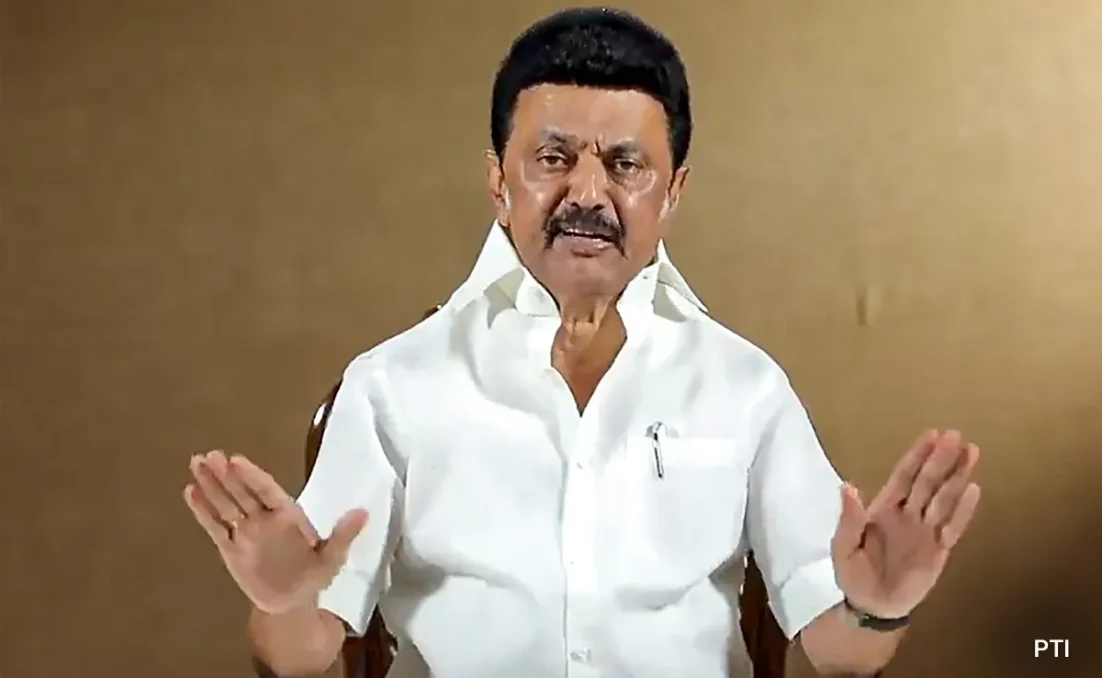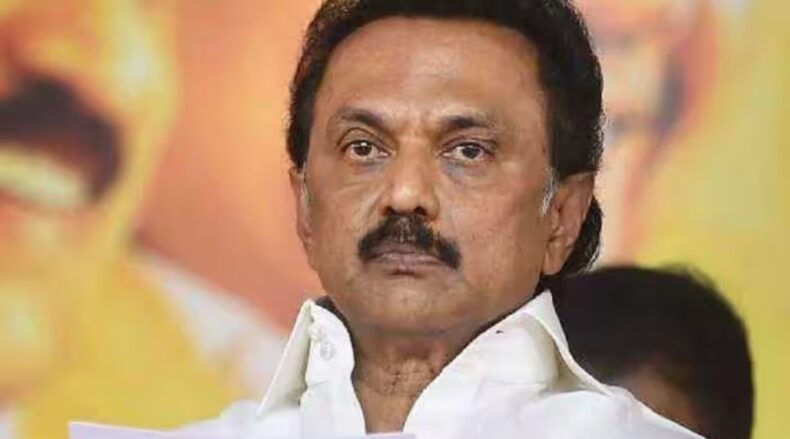Tamil Nadu Chief Minister M K Stalin has made an emotional plea to National Eligibility-cum-Entrance Test (NEET) candidates, urging them to refrain from entertaining thoughts of self-harm and instead confront life with confidence. This appeal comes in the aftermath of a tragic incident where a medical aspirant reportedly took his own life. Stalin asserted that with an impending political transition in the coming months, the barriers posed by National Eligibility-cum-Entrance Test (NEET) would crumble.
Stalin remarked that when this political change occurs, those who currently resist change will fade away. This statement is a veiled reference to Tamil Nadu Governor RN Ravi’s opposition to the state’s anti-NEET bill. Stalin expressed his sincere condolences over the demise of the student, Jagatheeswaran, and his father Selvasekhar, who also tragically ended his life. He fervently wished that their deaths would be the last attributed to the pressures of National Eligibility-cum-Entrance Test (NEET).
Jagatheeswaran’s death causes a stir
The Chief Minister was deeply affected by the recent loss of Jagatheeswaran, a diligent student who attempted but failed to clear the entrance test. He expressed his inability to console the grieving family, as the deceased student’s parents had aspired for their son to become a medical professional. However, Jagatheeswaran’s case, tragically, became another addition to the grim statistics of students affected negatively by the NEET examination.

Stalin appealed passionately for students not to resort to suicide in any circumstance, asserting that the obstacles posed by National Eligibility-cum-Entrance Test (NEET) would eventually be eliminated. He assured that the state government was actively pursuing legal measures to this end. He referred to previous legislative resolutions seeking National Eligibility-cum-Entrance Test (NEET) exemption for Tamil Nadu, noting that the Governor had rejected the first resolution and forwarded the second to the President for approval.
Stalin criticizes the unaffordability of NEET
Stalin criticized the expensive nature of the NEET examination, arguing that only affluent students could afford the high costs associated with it. He asserted that this situation led to the exclusion of less privileged students who could not afford such expensive preparations. Despite this, he mentioned that the state government had introduced a 7.5 percent reservation for economically disadvantaged students from government schools in medical colleges.
The Chief Minister accused the Governor of being aligned with the interests of coaching centers, insinuating that the Governor’s stance favored the privileged rather than the underprivileged. He criticized the Governor’s actions, including inviting students to the Raj Bhavan for classes, as indications of a lack of understanding of the struggles of students from disadvantaged backgrounds.
MK Stalin reiterates Governor’s approval not necessary
Stalin emphasized that the Governor’s approval was not necessary for the National Eligibility-cum-Entrance Test (NEET) exemption bill, as it rested with the President. He condemned the lack of empathy displayed by the Governor in the face of numerous tragedies caused by the NEET examination. He wished for the tragic deaths of Jagatheeswaran and his father to be the last attributed to NEET and implored students to have confidence, avoid suicidal thoughts, and believe in a brighter future.
The Chief Minister’s emotional appeal seeks to address the alarming rise in suicides among National Eligibility-cum-Entrance Test (NEET) aspirants and emphasizes his commitment to working towards the elimination of the National Eligibility-cum-Entrance Test (NEET) barriers that contribute to such tragedies.













